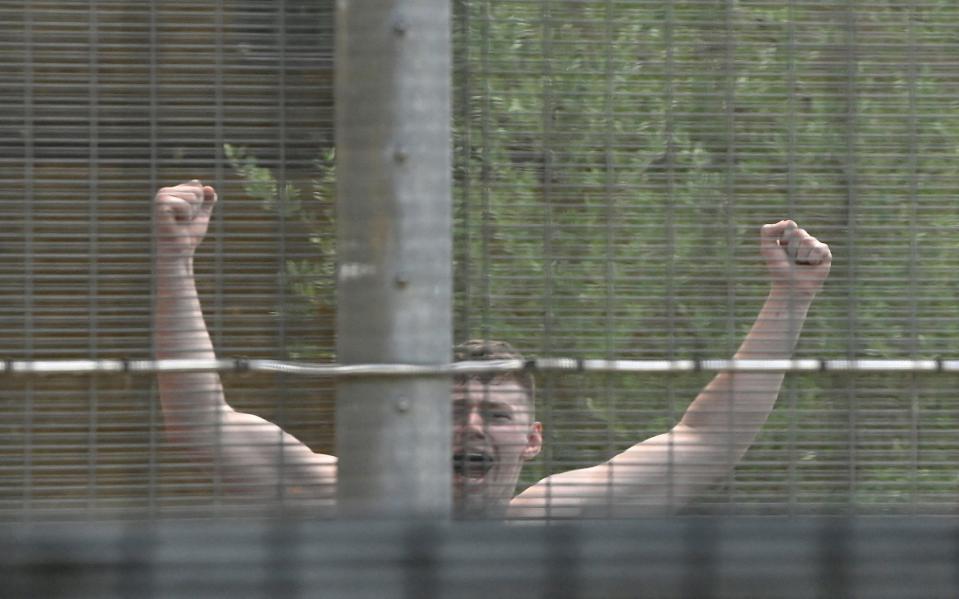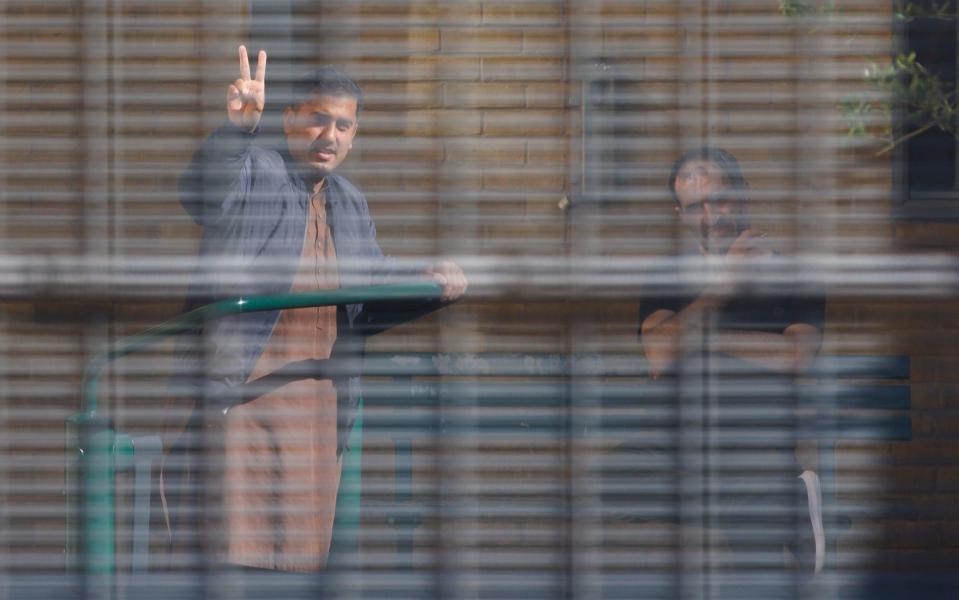Immigration detention centres need time limit on holding migrants, Home Office told by inquiry

Immigration removal centres need a time limit on how long it can hold migrants, the Home Office has been told.
New rules governing the use of force in immigration removal centres are also “urgently needed”, after an inquiry found “serious failings” in the safeguarding of detained migrants.
The Government has been told that it should introduce a time limit on how long migrants can be held, ensuring that they are not detained for more than four weeks.
The UK is the only country in Europe without a maximum limit on how long immigration detention can last.
The recommendations come after an inquiry into the treatment of individuals detained in the Brook House Immigration Removal Centre (IRC) in Gatwick between April and August 2017.
The report, published today, found that during this time there was a “widespread disregard or lack of understanding” on how to implement safeguarding rules in IRCs, leading to inappropriate use of force against those held at Brook House.
There was also evidence of “shocking” drug use and “terrifying violence” among detainees, as well as the use of force by staff on individuals with mental ill health.
The chairman of the inquiry, Kate Eves, said that she had “heard evidence that this confusion and flawed implementation [of safeguarding rules] may persist”.

She added: “I have therefore recommended that new comprehensive and mandatory rules for how force is used in Immigration Removal Centres is urgently needed.”
The findings come as the Home Office looks to expand the use of immigration detention as a means to curb illegal immigration into the UK, with the report urging that the Government “learn lessons from past failures”.
Immigration removal centres are facilities where people who are to be deported from the UK can be held, alongside foreign nationals who have served prison sentences who are awaiting deportation.
Ms Eves said “more needs to be done at the highest levels of Government to ensure that detained people are accorded the dignity and compassion they deserve,” as she issued 33 recommendations to the Home Office.
Among them are a 28-day time limit on how long migrants can be held in IRCs, as “people should not be held indefinitely for immigration purposes in an environment designed for the specification of a prison.”
The statutory public inquiry into Brook House was established in November 2019, following a “BBC Panorama” programme that revealed the mistreatment of men in the facility in 2017.
‘Credible evidence of mistreatment’
The inquiry identified 19 instances where there is “credible evidence” of mistreatment of those detained at the centre contrary to Article 3 of the European Convention of Human Rights, pertaining to “torture or inhuman or degrading treatment or punishment”.
The most serious incident involved “the application of pressure to a detained man’s neck while he was in extreme distress”, with other detainees being “forcibly moved” when they were naked or near naked.
The inquiry also found the “repeated use of an inherently dangerous restraint technique” that was associated with the death of a detained man in 2010.
The firm contracted to operate Brook House was G4S Care and Justice Services until May 2020, including during the terms of reference of the inquiry, when Serco Group took over its management.
‘Mere lip service’
Ms Eves urged the Home Office not to pay “mere lip service” to the report’s findings, with the department told to publish its response within six months.
She added: “The Government has made clear its intention to expand the use of immigration detention… Any expansion or other change should be considered in the context of learning lessons from past failures.”

